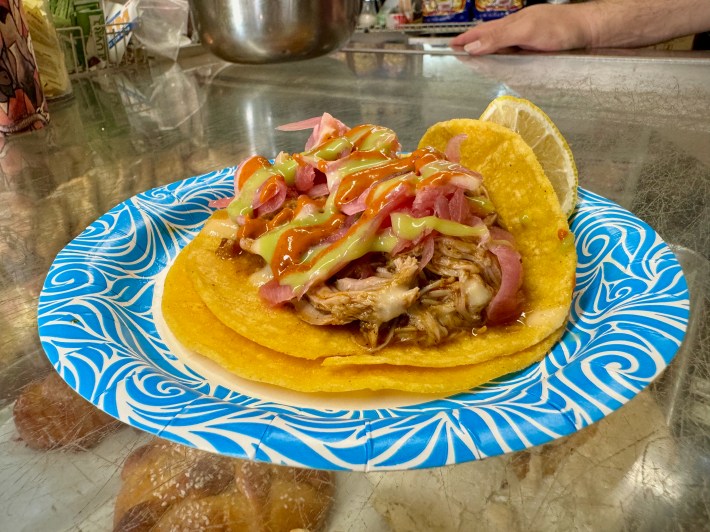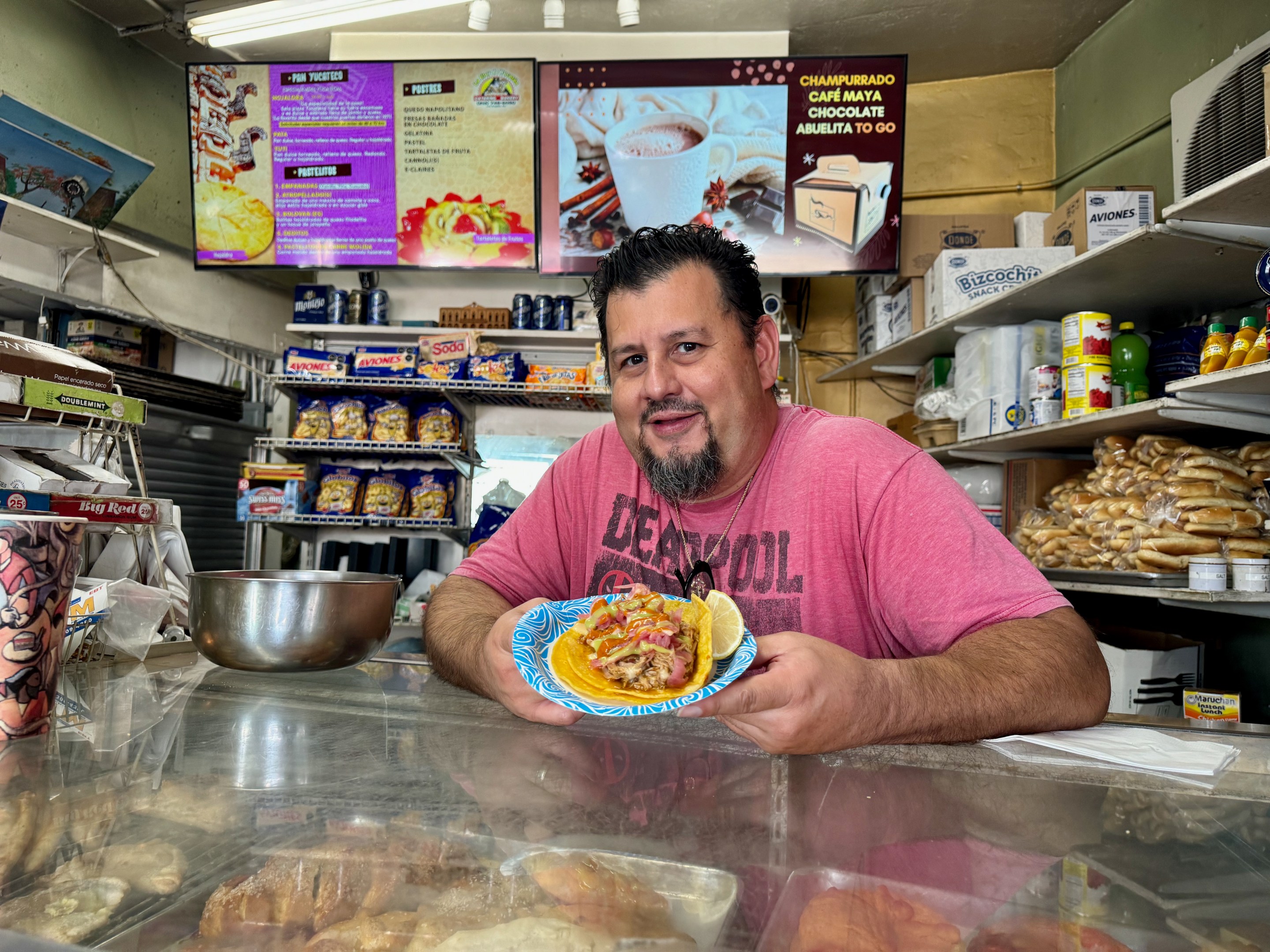“Cochinita is my fountain of youth,” jokes Marc Burgos, the second-generation owner of La Flor de Yucatán Bakery, off Hoover and 18th Streets in Pico-Union. At 50, he is younger than his father’s pioneering Yucatán bakery, the first in L.A. to offer cochinita pibil tacos.
For reference, that predates King Taco and the birth of L.A.’s two-bite taco by a whole year in 1972.
“I inherited this restaurant from my father,” Burgos tells L.A. TACO as he leans over the bakery case that has been here for over half a decade. He himself was born in Los Angeles but raised in Yucatán.
“I did my thing," he says. "I went to high school and college, and my parents got older. It was time for me to take over or let them retire. They sacrificed too much to end it, so I decided to give it a shot.”
That was 20 years ago.
“I definitely did not see myself going into the family business, but gradually, I came in and learned everything,” Burgos says.

Burgos says that selling the bakery's cochinita tacos in the early 1970s was a necessity, not a choice, as it’s always been common for immigrants to have side hustles and work multiple jobs at once.
“It started with cochinita. Then tamales and the menu grew from there,” he says.
He shares that their customers would come in looking for a “little piece of home,” and the cochinita was also born out of L.A.’s first wave of homesick Yucatecos. Like many other cooking traditions from different countries with more relaxed regulations, the recipe had to be adapted to strict U.S. food and safety requirements. Namely, figuring out how to get the achiote-seasoned pork as meltingly tender as possible in a gas oven, instead of an earthern oven, despite the word “earth oven or pit” being in the name of the dish (“pib” means pit in Mayan).
To this day, he still cooks the pork low and slow overnight. The resulting cochinita is so exorbitantly juicy and tender that you will have a small waterfall of achiote-tinged pork broth running down your forearm as you wolf down your taco in just a couple of bites.
According to Burgos, there are three things a legendary cochinita, like his father’s recipe, always has to have: a high-quality achiote paste, banana leaves, and bitter orange citrus. He sources a bitter orange concentrate and paste from Yucatán.
However, he says you can mix orange juice with lime juice to substitute for the unique bitter orange citrus. He also says that he tweaked his father’s recipe and omitted the extra lard added into the roasting tray, instead relying on slow-cooked, properly rendered natural fat found in the bone-in, untrimmed pork butt he uses.
To this day, he still cooks the pork low and slow overnight. The resulting cochinita is so exorbitantly juicy and tender that you will have a small waterfall of achiote-tinged pork broth running down your forearm as you wolf down your taco in just a couple of bites.
Burgos does take some U.S.-only allowances that you wouldn’t see in Yucatán, like serving the tacos with a taquería guacamole. He also uses packaged corn tortillas from Northgate Market and Adelita’s Tortillería. That same masa source goes into the rest of the bakery’s antojitos menu.
They have at least three different Yucatán-style tamales on the menu every day, including the hard-to-find tamal colado that has a softer texture, almost like gelatin, since the masa is strained through the fine-sieved mesh to remove the gritty parts.
Burgos says that he’s still “getting out of the hole” that the pandemic put him in, but that an expansion is coming, sooner or later. One of his favorite memories is of the day when Gilberto Cetina Sr. of Chichen Itzá restaurant came into his family’s bakery and asked if they could kindly start referring their Yucateco customers to Chichen Itzá after it had first opened in 2001.
"And now look at them!” Burgos jokes.
The second generation owner says that his family's secret to staying in business for over 50 years is “building community, being loyal to your customers, and being loyal to the product.”
1800 Hoover St. Los Angeles, CA 90006






